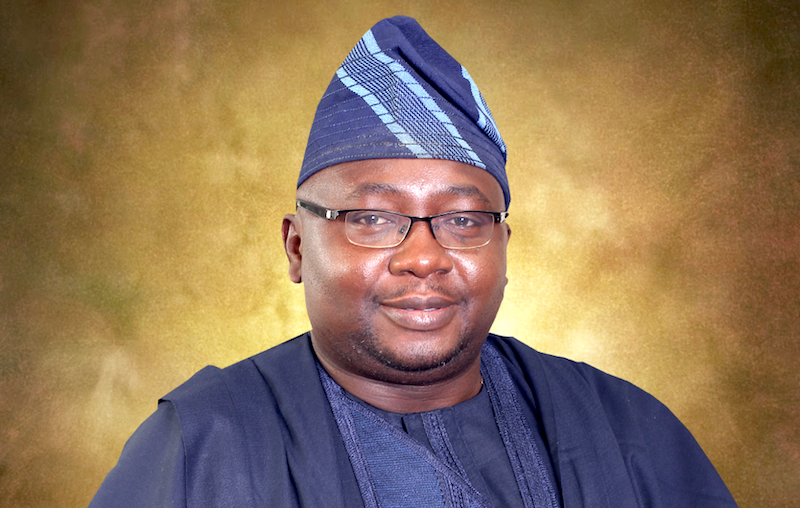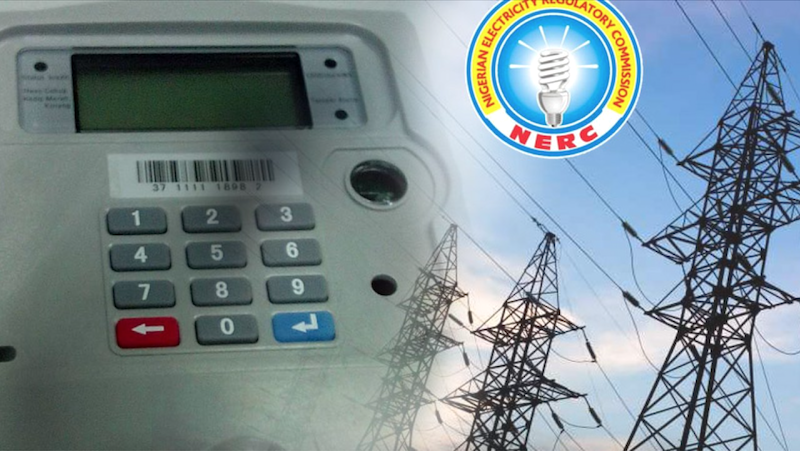The moment of revelation came unexpectedly on a high-speed train leaving Beijing, where a screen showed that 36% of the train’s traction power came from wind energy. Outside, rows of wind turbines turned gracefully under the sun. For someone familiar with Nigeria’s unreliable grid—where diesel generators hum through the night and candles are often the only light—this was astonishing. By nightfall, Shenzhen’s LED-lit skyline shone brighter than Nigeria’s entire grid on its brightest day.
After ten days engaging with institutions and professionals in Singapore, Qatar, and China, I am convinced Nigeria’s energy independence is achievable. The raw materials and technology to power Nigeria exist; what is missing is an unwavering commitment to unite our resources under a common vision. If China’s electricity generation can soar from just over 1,300 TWh in 2000 to over 10,000 TWh by 2024 and if Uruguay, a small country with no fossil fuels reserves, can leap to 90% renewable electricity in a decade, then Nigeria, blessed with abundant sunlight, deep gas reserves, and hydropower potential, can close its electricity gap in five years.
Electricity is more than illumination—it is the backbone of modern life. It is the force that powers cocoa presses in Ondo, preserves fish catches for the market in the Niger Delta, drives vaccine cold-chain trucks delivering vaccines to remote clinics, fuels data centres, and charges batteries for homes in bustling cities. In Lagos, factories lose up to 40% of their profits due to reliance on diesel generators during outages. In a world where the cost of backup power can turn a manufacturer from profit to loss, a reliable grid power is nothing less than an economic lifeline. The potential economic benefits of dependable electricity demand decisive action.
Reliable electricity is not just about balance sheets and national budget narratives; it is about social stability and well-being. The International Energy Agency notes that each additional gigawatt of dependable power can support between 40,000 and 50,000 jobs in construction, manufacturing, and services. This potential for job creation is a beacon of hope for Nigeria’s youth, comprising approximately 70% of the population. More jobs mean fewer vulnerable youths susceptible to insurgency or crime; electricity thus becomes a preventive measure for security. Its social benefits underscore its importance and the gravity of the situation, motivating us to work towards it.
At the same time, scarcity also means lost opportunity. For example, Bitcoin mining consumes approximately 33 TWh annually, comparable to Denmark’s annual electricity production. Where power is cheap and abundant, tech firms thrive; where it is rationed and generator-dependent, capital and high-skilled jobs flee, along with tax revenues and tech cluster growth.
Most importantly, universal electricity saves lives. Clinics with reliable refrigeration reduce maternal and infant mortality. Schools with dependable power extend learning hours and offer digital curricula to children in rural areas, providing them with access to educational resources. Streetlights deter crime and help women feel safe. Access to electricity correlates strongly with literacy, life expectancy, and income. These social benefits underscore the urgency and importance of ensuring reliable electricity for all Nigerians, emphasising the need for immediate action.
China’s story demonstrates how quickly a nation can pivot when policy is clear and capital is welcome. In 2000, China’s grid produced just over 1,300 TWh, approximately one-third of the U.S. output. By 2006, it had surpassed the U.S., and by 2024, it had generated over 10,000 TWh, nearly twice the U.S. output. How? This was driven by legally binding Five-Year Plan targets for capacity, efficiency, and emissions, which provincial governments and state enterprises implemented consistently. The annual investment in generation, transmission, and distribution peaked at approximately 5% of GDP, significantly higher than Nigeria’s rate of under 1%.
China then diversified its energy mix: coal remained the backbone, but hydroelectric dams, solar farms, wind parks, and nuclear reactors grew rapidly. By 2024, non-fossil sources accounted for over 38% of generation. Transparent auctions and two-part tariffs -fixed network charges plus variable consumption charges-aligned incentives for consumers, utilities, and investors. Oversight by a Supra-ministerial National Energy Commission, chaired by the Premier, ensured sector accountability and minimised bureaucratic conflicts. Programmes like Made in China 2025 have invested billions in solar chemistry, grid batteries, and power electronics, driving down costs and increasing capacity.
China is not a perfect analogue for Nigeria, with different political and fiscal realities. However, its trajectory reveals a key truth: a country can add the equivalent of America’s entire grid in one generation when policy is clear and capital is welcome.
Uruguay offers another lesson. In the early 2000s, it faced drought-prone hydropower, oil imports for thermal plants, rolling blackouts, and tariff spikes. In 2005, all political parties agreed on a 25-year energy policy ensuring bipartisanship and stability. Transparent auctions attracted global wind and solar developers. Within eight years, Uruguay installed 1.3 GW of wind capacity—the highest per capita worldwide—plus solar and biomass projects. By 2016, renewables generated over 90% of electricity, tariffs had stabilised, and Uruguay exported a surplus of power to Argentina. The secret was not sheer size or resource advantage, but a credible, long-term plan backed by market discipline.
It’s heartening to see the federal government take such decisive action to reshape Nigeria’s electricity landscape. The repeal of the Electric Power Sector Reform Act of 2005 and its replacement with the Electricity Act 2023 is more than a legal adjustment—it feels like the opening of a new chapter. Beyond simply rewriting the rules, we have witnessed the very architecture of our power sector undergo a transformation. By dividing the Transmission Company of Nigeria into two distinct bodies —the Transmission Service Provider, which maintains towers, lines, and substations, and the Independent System Operator, which coordinates the flow of power —there is hope. There is something fundamentally reassuring about having a dedicated steward for our physical network and a separate, impartial referee for load allocation among generators, distributors, and consumers.
And yet, as promising as these reforms are, I cannot help but pause and wonder: Will structural change alone bridge the yawning gap between the electricity we have and the electricity we need? True transformation will demand more than new acronyms and fresh mandates. We will need a power regime that ignites investment, drives innovation, and sustains long-term growth—one that reaches into every corner of this country and lights up the lives of all Nigerians. In this moment of transition, I am reminded that reform is always a beginning, never an end. The Electricity Act 2023, along with the creation of ISO and TSP, marks a bold step forward. But the journey toward an abundant, reliable power—one that can fuel homes, industries, and imaginations – remains ahead of us.
Mapping Nigeria onto those blueprints reveals the scale of our challenge, but also the path out. We have 13 GW of nameplate capacity but less than 5 GW reliably available; combined technical and commercial losses exceed 40%; a generation mix skewed to gas and hydro; fourteen primary policy documents since 2001; a single-buyer market struggling to pay gas plants; retail tariffs below cost; and almost no R&D investment for home-grown solutions. China and Uruguay faced similar gaps at the start of reform; the difference lies in governance, investment discipline, and market design.
None of these gaps is immutable. Nigeria needs a five-year Power Sufficiency Roadmap, enshrined in law, to ensure stability during periods of political transition. This roadmap should be overseen by a presidential Energy Council with a real-time dashboard tracking capacity, dispatch, losses, finance, and service quality. The Transmission Company of Nigeria should be ring-fenced and spun into an independent system operator, funded by sovereign guarantees, green climate funds, and pension bonds. New generation projects should leverage Nigeria’s advantages, including utility-scale solar in the north with domestic panel assembly, run-of-river hydro in the Middle Belt, gas peaking plants in Lagos, and gas plus near-shore wind farms along the coast. Tariffs must be cost-reflective, offering a subsidised lifeline block of approximately 50 kWh per month. Digital meters and mobile money will target subsidies precisely to the poorest households.
Ten per cent of the Rural Electrification Fund should seed university-industry consortia developing battery recycling, smart meter firmware, and modular inverters tailored to local conditions. Heavy-load offenders—such as illegal crypto mines and inefficient data centres—should face time-of-use penalties or bans, thereby freeing a few terawatt-hours for factories and clinics. If executed faithfully, Nigeria could achieve 20 GW of dependable capacity within five years, with unserved energy below 5%, grid losses cut by two-thirds, and reliable power in every urban centre. Manufacturing output would rise, household bills would fall by up to 30%, and over three million jobs would emerge in generation, contracting, assembly, and services. Clinics and schools would run uninterrupted; entrepreneurs would no longer budget for diesel; foreign direct investment would flow into tech parks and export zones.
Nigeria has richer sunlight than Spain, deeper gas reserves than Norway, and hydropower potential rivalling that of Ethiopia. Our entrepreneurial spirit, mobile money networks, and growing digital workforce equip us to leapfrog legacy barriers. What remains is the decision to marshal policy, capital, and markets toward power sufficiency for all.
China demonstrates that a nation can turbocharge its grid with single-minded policy, and capital feels secure. Uruguay indicates that even a small, import-dependent country can become a net power exporter within a decade. Nigeria has the resources and technology; what it lacks is coordinated conviction. Progress is a choice. If Nigeria adopts coherent policy, disciplined investment, and market incentives, five years from now, 2024 will be remembered not as a year of darkness but as the turning point toward reliable, affordable electricity for all. The switch is within reach. Let’s flip it.






